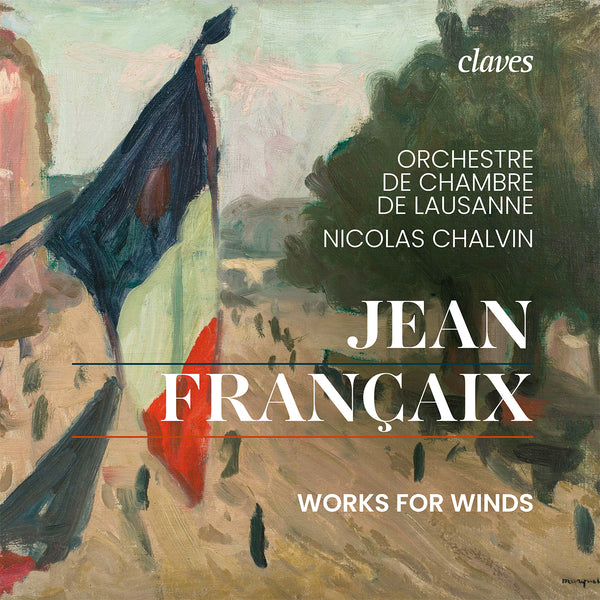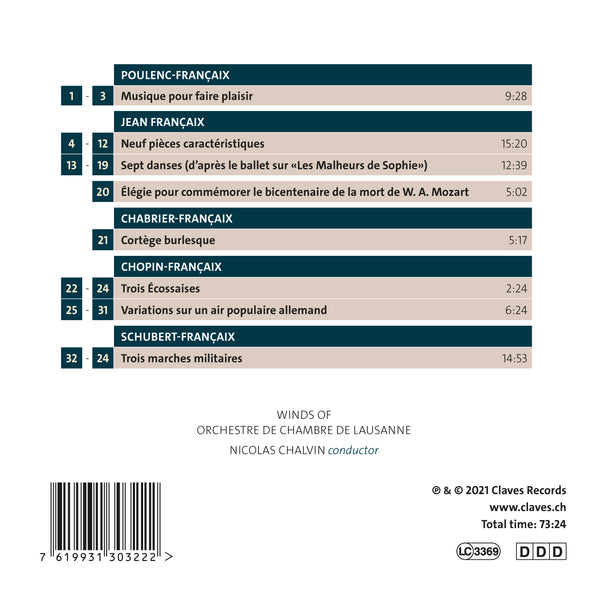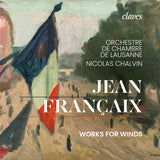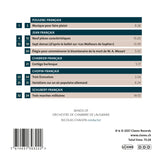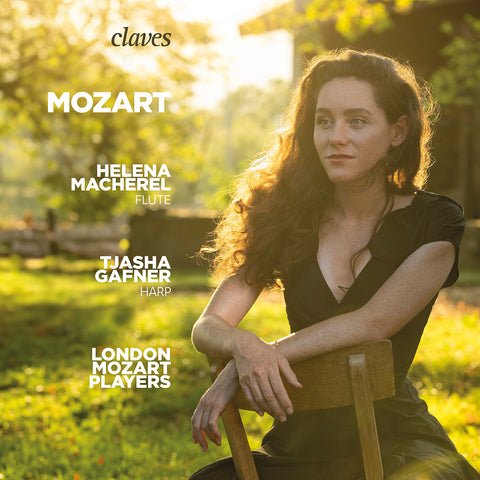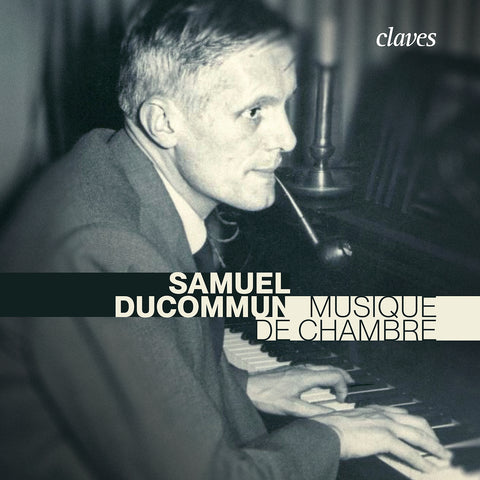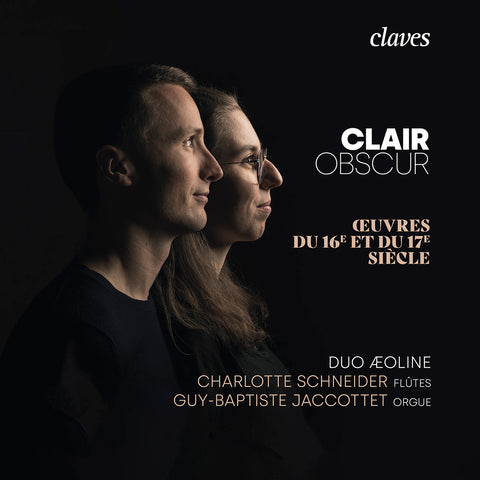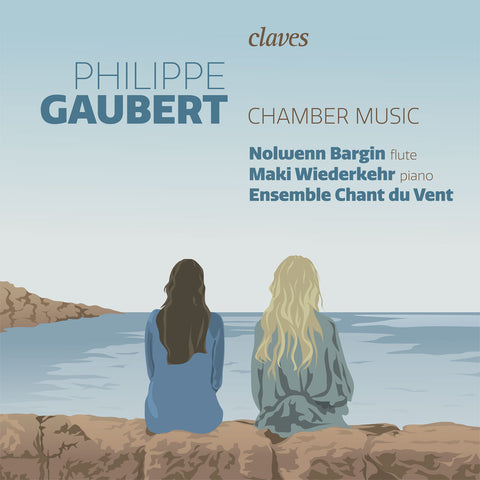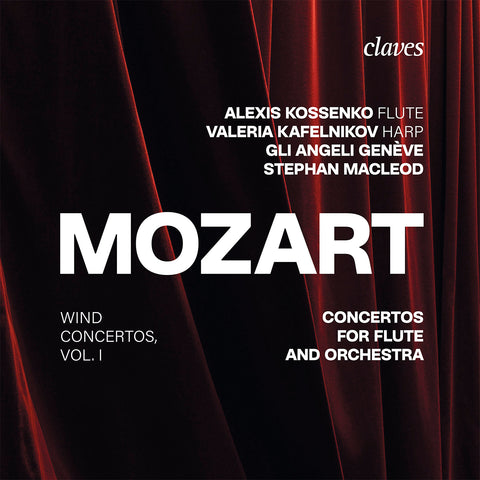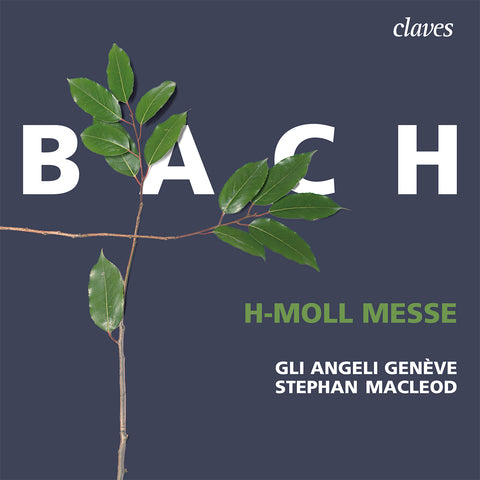(2021) Jean Françaix: Works for winds
Category(ies): Orchestra Rarities
Instrument(s): Clarinet Flute Oboe
Main Composer: Jean Françaix
Orchestra: Orchestre de Chambre de Lausanne
Conductor: Nicolas Chalvin
CD set: 1
Catalog N°:
CD 3032
Release: 22.10.2021
EAN/UPC: 7619931303222
This album is now on repressing. Pre-order it at a special price now.
CHF 18.50
This album is no longer available on CD.
This album has not been released yet. Pre-order it from now.
CHF 18.50
This album is no longer available on CD.
CHF 18.50
VAT included for Switzerland & UE
Free shipping
This album is no longer available on CD.
VAT included for Switzerland & UE
Free shipping
This album is now on repressing. Pre-order it at a special price now.
CHF 18.50
This album is no longer available on CD.
This album has not been released yet.
Pre-order it at a special price now.
CHF 18.50
This album is no longer available on CD.
CHF 18.50
This album is no longer available on CD.
JEAN FRANÇAIX: WORKS FOR WINDS
>> Clé d'or 2021 - ResMusica (Catégorie: Musique pour les vents) <<
About this album
Jean Françaix had a passion for wind instruments, in particular for the dextuor, an original formation for which he could combine the expressive richness of the octet, so dear to Mozart, with the shimmer and volubility of the wind quintet.
Throughout this recording, it was an immense pleasure to immerse oneself in his music, to let oneself go with the contrasting moods and atmospheres, in turn funny, tender, casual or elegiac.
A pleasure shared by the musicians of the Lausanne Chamber Orchestra, who were keen to showcase their sense of transparency, their musicality and their flawless virtuosity.
We are therefore very happy to share these wonderful moments with you, and hope that listening to this disc will bring you happiness and joy. (Nicolas Chalvin)
Orchestre de Chambre de Lausanne – Section Bois et Cors
FLUTES
Jean-Luc Sperissen, premier solo
Anne Moreau Zardini, deuxième solo
CLARINETTES
Davide Bandieri, premier solo
Curzio Petraglio, deuxième solo
CORS
Iván Ortiz Motos, premier solo
Andrea Zardini, deuxième solo
HAUTBOIS
Beat Anderwert, premier solo
Clothilde Ramond, deuxième solo
BASSONS
Axel Benoit, premier solo
François Dinkel, deuxième solo
THE PLEASURE OF JEAN FRANÇAIX’S WIND DECETS
Jean Françaix composed music in all genres that has a natural flow. His aesthetic is aligned with that of Chabrier, Ravel and Poulenc, with Mozart and Schubert in the background. Françaix was opposed to theories, and shunned boredom and pretentiousness; he attached far more importance to clarity, wit and perfection of craftsmanship.
From early on, Françaix developed a special relationship with Germany, notably through his principal publisher Schott. He also received several commissions via Klaus Rainer Schöll, conductor of the Bläser Ensemble Mainz (Mainz Wind Ensemble). Most of the pieces recorded here result from this collaboration: three original works and four transcriptions, all written for a wind decet.
This instrumental ensemble, which is actually a double quintet, traditionally comprises two flutes, two oboes, two clarinets, two bassoons and two horns - with possible variations in each section [..].
>> Read more in the booklet <<
Nicolas Southon
(Translation: Michelle Bulloch - Musitext)
Jean Françaix fêté par les vents de l’Orchestre de chambre de Lausanne chez @clavesrecords@Orchestre_OCLhttps://t.co/wfARxEoVCC
— ResMusica (@ResMusica) November 16, 2021
REVIEWS
« [..] L’affinité de Jean Françaix avec les instruments à vent est bien connue. Elle éclate dans les Neuf pièces caractéristiques (1973), toutes très brèves, où se déclinent les climats chers à l’auteur, l’humour, la gaieté et, parfois, une discrète nostalgie. [..] Les pages d’après Chopin et Schubert relèvent de l’exercice d’instrumentation et de l’hommage à des compositeurs dont Françaix se sentait proche. Ces arrangements sont instrumentés pour dixtuor, soit un double quintette pour flûte, hautbois, clarinette, cor et basson. Ce programme rare et plaisant, souvent d’une grande virtuosité, est interprété par les vents de l’Orchestre de chambre de Lausanne, conduit avec vivacité et précision par Nicolas Chalvin. » - Jacques Bonnaure, février 2022
« Eine deutsch-französische Entente verschaffte der blasenden Zunft eine Reihe zündender Repertoirestücke für doppelt besetztes Bläserquintett (je zwei Flöten, Oboen, Klarinetten, Fagotte und Hörner). Vom Mainzer Verlagshaus des Komponisten angeregt, entwickelte sich zwischen Jean Françaix (1912–1997) und dem vormaligen Dirigenten des Mainzer Bläserensembles, Klaus Rainer Schöll, eine langjährige Freundschaft. Sie brachte sowohl bestechende Arrangements als auch geistblitzende Eigenschöpfungen des Franzosen hervor: einen Repertoireschatz ersten Ranges, den sich die famosen Bläsersolisten des Lausanner Orchestre de Chambre unter Leitung von Nicolas Chalvin glücklich zu eigen machten. [..]» - Lutz Lesle, Mai 2022
« [..] Les vents de l'Orchestre de chambre de Lausanne y sont aussi caméléonesques. Après le cor de basset et la clarinette basse, le piccolo, le cor anglais et le contrebasson font une entrée remarquée dans le Cortège burlesque. « En somme, le cher Emmanuel Chabrier est [notre] bon maître », semblent-ils déclarer en choeur. Les membres de l'Orchestre de Chambre de Lausanne livrent une lecture haute en couleurs des Neuf pièces caractéristiques (1974) et des Sept danses tirées en 1970 du ballet Les Malheurs de Sophie (1948). Leur version quasi chorégraphique met en scène différents couples : les clarinettes espiègles dans la pièce n° 8 et La présentation des petits amis; les flûtes dans la n° 7 et surtout dans la Danse des filets à papillons où elles virevoltent. Les anches doubles ne sont pas en reste, rivalisant de staccato sur un rythme latin (n° 4) tandis que les cors, ouverts ou bouchés, ponctuent le tout avec tendresse ou ironie (n° 5). Des adaptations de Chopin et Schubert complètent l'album dans une veine non moins virtuose comme l'attestent les redoutables traits pianistiques des Trois Ecossaises. Tous les instruments sont à l'honneur dans les Variations sur un air populaire allemand (avec une mention spéciale pour le basson agile d'Axel Benoît). La colonne d'harmonie fait ses adieux avec les Trois marches militaires que la transcription intelligente de Françaix et l'excellence des interprètes ennoblissent. » - Bertrand Hainaut, juillet 2022
« Die Bläser des Orchestre de Chambre de Lausanne haben eine erstaunlich abwechslungsreichen Jean-Françaix-Platte aufgenommen. 'Musique pour faire plaisir': So nannte Jean Françaix eines seiner Werke. Und es ist in der Tat ein großes Vergnügen, seinen Klängen zu lauschen. Eine neue Platte beleuchtet seine Musik für Bläserensembles, eine eher wenig bekannte Facette seines Schaffens. Die Bläser des Orchestre de Chambre de Lausanne füllen damit knapp 75 Minuten. Françaix schrieb nämlich eine ganze Reihe von Werken für zehn Bläser, genauer für je zwei Flöten, Oboen, Klarinetten, Hörner und Fagotte, wobei alternierend auch Piccoloflöte, Englischhorn, Bassklarinette, Bassetthorn und Kontrafagott zum Einsatz kommen und für einen erstaunlichen Farbenreichtum sorgen. [..] » - Jan Kampmeier, Januar 2022
« Wer die beschwingt-witzige Musik eines Francis Poulenc oder Erik Satie mag, wird jene von Jean Françaix nicht minder lieben. Der fleissige Franzose (1912–1997) hat ein vielfältiges Œuvre hinterlassen, aus dem das Orchestre de Chambre de Lausanne unter Nicolas Chalvin nun eine exquisite Auswahl auf CD vorlegt. Es sind Werke für Blasinstrumente, denn Françaix liebte sie. Seine «Neuf pièces caractéristiques» für Bläser-Tentett bilden das Herz dieser Aufnahme. Ergänzend erklingen Arrangements von Stücken aus den Federn von Poulenc, Chabrier, Chopin, Schubert und Mozart. Ob eigene Komposition oder Bearbeitung: Jean Françaix war ein Meister des musikalischen Raffinements, der mit Rhythmen jonglierte und dem Credo «musique pour faire plaisir» (Musik zur reinen Freude) folgte. Eine CD mit rundum gut gelaunter Musik. » - Frank von Niederhäusern, Oktober 2021
“This excellent new CD of Jean Françaix’s wind music is both interesting and delightful from the first note to the last. Characteristically genial music, it occasionally explores deeper matters. All are written for Wind Decet: two each of flutes, oboes, clarinets, bassoons and horns. I would suggest a slow exploration of this CD, taking each composition in turn. Unremitting pieces of wind music can begin to sound very much alike. [..] The playing by the Winds of Orchestre de Chambre de Lausanne and their conductor Nicolas Chalvin is brilliant, detailed, and typically witty. This is reflected in the excellent recording. The liner notes in French and English are most helpful.” - John France, November 2021
“Music that is intelligently written and yet does not have an intellectual character. Quite extraordinary actually. He also had a reputation to uphold as an arranger, which is also evident from this album and whose performances leave nothing to be desired either interpretatively or technically. Nicolas Chalvin knows how to "mold" a wind ensemble, which also explains the instrumental colorfulness and the very successful contrast effect that comes out of the speakers completely naturally. [..] . A plus point is that the explanatory notes are of excellent quality. So is the recording.” - Aart van der Wal, October 2021
“[..] The interpretations of the wind section of the Orchestre de Chambre de Lausanne, conducted with inspiration by Nicolas Chalvin, do justice to the character of the compositions, conveying all the finesse and playfulness of the fast movements and the poetry and great delicacy of the slow movements. Some of it, however, has been heard in bolder interpretations.” - Remy Franck, October 2021
“[..] It should be added that the protagonist of the recording this time is the brass section of the Lausanne Chamber Orchestra, conducted by Nicolas Chalvin with great feeling, taste and freedom, showing the best sides of the works presented, as well as the excellent disposition of the individual instruments and the musicians playing them. [..] As a result of the joint work of the instrumentalists and the conductor, we have a performance characterised on the one hand by due care and impeccable precision of playing, rhythmic vigour and often virtuosic features, and on the other by a focus on the most important components of the creation of a musical work. One can hear the care for the sound, sound quality, synchronisation of dynamics, nice phrasing, harmony of the whole group, which has a lot to show off and in lively and even witty compositions, as well as more reflective and lyrical ones, of which the aforementioned Elegy is the best example. [..]” - Paweł Chmielowski, February 2022
« [..] Avec cette gravure réalisée par Claves au début de cette année, on déguste, grâce aux charmes, à l’homogénéité et à la musicalité des vents de l’Orchestre de chambre de Lausanne, un large pan de ses productions pour dixtuor que Françaix chérissait particulièrement. Nicolas Chalvin, musicien aguerri et inspiré coordonne cette réalisation avec goût et entrain. Lui et ses instrumentistes s’investissent pour faire briller l’esthétique de Françaix. Classé dans le groupe « Jeune France », il appartient totalement à un néoclassicisme aussi léger que brillant, aussi attrayant qu’élégant, magnifiant cet « esprit français » avec un double lignage vers Chabrier, Ravel et Poulenc, et vers Mozart et Schubert. Françaix à l’écriture raffinée, charmeuse et élégante, spontanée et dépourvue de prétention rhétorique, trouve dans cette lecture parfaite des défenseurs dévoués et attentifs à déjouer toute routine ou affectation. Cette belle rencontre leur garantit pour longtemps une première place dans la discographie. » - Jean-Luc Caron, novembre 2021
« Seine Musik hat Witz, lebt von sprudelndem Einfallsreichtum und rhythmischer Raffinesse: Die Rede ist von Jean Françaix, einem Unikum des 20. Jahrhunderts. Der 1912 in Le Mans geborene französische Komponist war alles andere als ein Avantgardist, seine Musik orientiert sich an Strawinskys Neoklassizismus, verinnerlicht aber auch die Eleganz und Finesse eines Francis Poulenc und generell der Groupe des Six. Bis zu seinem Tod 1997 in Paris blieb Françaix seiner Linie treu. [..] Dem schafft nun die Bläsergruppe des Orchestre de chambre de Lausanne unter der Leitung von Nicolas Chalvin wenigstens auf CD Abhilfe. Da staunt man über die rhythmische Akkuratesse im motorischen Ablauf des einleitenden Presto und die Tiefgründigkeit des nachfolgenden, elegisch-charmanten Amoroso. Es ist ein starkes Plädoyer für eine beim Publikum wenig bekannte Musik. Klug aufgebaut ist die Programmabfolge, die sinnigerweise mit einer Musique pour faire plaisir von Poulenc-Françaix beginnt, womit man sich gleich mittendrin in diesem raren, witzig-eloquenten «Musikidiom» mit je zwei Flöten, Oboen, Klarinetten, Fagotten und Hörnern befindet. » - Verena Naegele, Januar 2022
« Jean Françaix wollte mit seiner Musik vor allem eins: Freude machen – «faire plaisir». Das Bläserregister des Orchestre de Chambre de Lausanne widmet dem französischen Komponisten eine ganze CD: Originalkompositionen und Bearbeitungen für Bläser-Dezett, teileweise sogar mit einer Prise Schweizbezug! » - David Schwarb, November 2021
>> Clé d'or 2021 - ResMusica (Catégorie: Musique pour les vents) <<
About this album
Jean Françaix had a passion for wind instruments, in particular for the dextuor, an original formation for which he could combine the expressive richness of the octet, so dear to Mozart, with the shimmer and volubility of the wind quintet.
Throughout this recording, it was an immense pleasure to immerse oneself in his music, to let oneself go with the contrasting moods and atmospheres, in turn funny, tender, casual or elegiac.
A pleasure shared by the musicians of the Lausanne Chamber Orchestra, who were keen to showcase their sense of transparency, their musicality and their flawless virtuosity.
We are therefore very happy to share these wonderful moments with you, and hope that listening to this disc will bring you happiness and joy. (Nicolas Chalvin)
Orchestre de Chambre de Lausanne – Section Bois et Cors
FLUTES
Jean-Luc Sperissen, premier solo
Anne Moreau Zardini, deuxième solo
CLARINETTES
Davide Bandieri, premier solo
Curzio Petraglio, deuxième solo
CORS
Iván Ortiz Motos, premier solo
Andrea Zardini, deuxième solo
HAUTBOIS
Beat Anderwert, premier solo
Clothilde Ramond, deuxième solo
BASSONS
Axel Benoit, premier solo
François Dinkel, deuxième solo
THE PLEASURE OF JEAN FRANÇAIX’S WIND DECETS
Jean Françaix composed music in all genres that has a natural flow. His aesthetic is aligned with that of Chabrier, Ravel and Poulenc, with Mozart and Schubert in the background. Françaix was opposed to theories, and shunned boredom and pretentiousness; he attached far more importance to clarity, wit and perfection of craftsmanship.
From early on, Françaix developed a special relationship with Germany, notably through his principal publisher Schott. He also received several commissions via Klaus Rainer Schöll, conductor of the Bläser Ensemble Mainz (Mainz Wind Ensemble). Most of the pieces recorded here result from this collaboration: three original works and four transcriptions, all written for a wind decet.
This instrumental ensemble, which is actually a double quintet, traditionally comprises two flutes, two oboes, two clarinets, two bassoons and two horns - with possible variations in each section [..].
>> Read more in the booklet <<
Nicolas Southon
(Translation: Michelle Bulloch - Musitext)
Jean Françaix fêté par les vents de l’Orchestre de chambre de Lausanne chez @clavesrecords@Orchestre_OCLhttps://t.co/wfARxEoVCC
— ResMusica (@ResMusica) November 16, 2021
REVIEWS
« [..] L’affinité de Jean Françaix avec les instruments à vent est bien connue. Elle éclate dans les Neuf pièces caractéristiques (1973), toutes très brèves, où se déclinent les climats chers à l’auteur, l’humour, la gaieté et, parfois, une discrète nostalgie. [..] Les pages d’après Chopin et Schubert relèvent de l’exercice d’instrumentation et de l’hommage à des compositeurs dont Françaix se sentait proche. Ces arrangements sont instrumentés pour dixtuor, soit un double quintette pour flûte, hautbois, clarinette, cor et basson. Ce programme rare et plaisant, souvent d’une grande virtuosité, est interprété par les vents de l’Orchestre de chambre de Lausanne, conduit avec vivacité et précision par Nicolas Chalvin. » - Jacques Bonnaure, février 2022
« Eine deutsch-französische Entente verschaffte der blasenden Zunft eine Reihe zündender Repertoirestücke für doppelt besetztes Bläserquintett (je zwei Flöten, Oboen, Klarinetten, Fagotte und Hörner). Vom Mainzer Verlagshaus des Komponisten angeregt, entwickelte sich zwischen Jean Françaix (1912–1997) und dem vormaligen Dirigenten des Mainzer Bläserensembles, Klaus Rainer Schöll, eine langjährige Freundschaft. Sie brachte sowohl bestechende Arrangements als auch geistblitzende Eigenschöpfungen des Franzosen hervor: einen Repertoireschatz ersten Ranges, den sich die famosen Bläsersolisten des Lausanner Orchestre de Chambre unter Leitung von Nicolas Chalvin glücklich zu eigen machten. [..]» - Lutz Lesle, Mai 2022
« [..] Les vents de l'Orchestre de chambre de Lausanne y sont aussi caméléonesques. Après le cor de basset et la clarinette basse, le piccolo, le cor anglais et le contrebasson font une entrée remarquée dans le Cortège burlesque. « En somme, le cher Emmanuel Chabrier est [notre] bon maître », semblent-ils déclarer en choeur. Les membres de l'Orchestre de Chambre de Lausanne livrent une lecture haute en couleurs des Neuf pièces caractéristiques (1974) et des Sept danses tirées en 1970 du ballet Les Malheurs de Sophie (1948). Leur version quasi chorégraphique met en scène différents couples : les clarinettes espiègles dans la pièce n° 8 et La présentation des petits amis; les flûtes dans la n° 7 et surtout dans la Danse des filets à papillons où elles virevoltent. Les anches doubles ne sont pas en reste, rivalisant de staccato sur un rythme latin (n° 4) tandis que les cors, ouverts ou bouchés, ponctuent le tout avec tendresse ou ironie (n° 5). Des adaptations de Chopin et Schubert complètent l'album dans une veine non moins virtuose comme l'attestent les redoutables traits pianistiques des Trois Ecossaises. Tous les instruments sont à l'honneur dans les Variations sur un air populaire allemand (avec une mention spéciale pour le basson agile d'Axel Benoît). La colonne d'harmonie fait ses adieux avec les Trois marches militaires que la transcription intelligente de Françaix et l'excellence des interprètes ennoblissent. » - Bertrand Hainaut, juillet 2022
« Die Bläser des Orchestre de Chambre de Lausanne haben eine erstaunlich abwechslungsreichen Jean-Françaix-Platte aufgenommen. 'Musique pour faire plaisir': So nannte Jean Françaix eines seiner Werke. Und es ist in der Tat ein großes Vergnügen, seinen Klängen zu lauschen. Eine neue Platte beleuchtet seine Musik für Bläserensembles, eine eher wenig bekannte Facette seines Schaffens. Die Bläser des Orchestre de Chambre de Lausanne füllen damit knapp 75 Minuten. Françaix schrieb nämlich eine ganze Reihe von Werken für zehn Bläser, genauer für je zwei Flöten, Oboen, Klarinetten, Hörner und Fagotte, wobei alternierend auch Piccoloflöte, Englischhorn, Bassklarinette, Bassetthorn und Kontrafagott zum Einsatz kommen und für einen erstaunlichen Farbenreichtum sorgen. [..] » - Jan Kampmeier, Januar 2022
« Wer die beschwingt-witzige Musik eines Francis Poulenc oder Erik Satie mag, wird jene von Jean Françaix nicht minder lieben. Der fleissige Franzose (1912–1997) hat ein vielfältiges Œuvre hinterlassen, aus dem das Orchestre de Chambre de Lausanne unter Nicolas Chalvin nun eine exquisite Auswahl auf CD vorlegt. Es sind Werke für Blasinstrumente, denn Françaix liebte sie. Seine «Neuf pièces caractéristiques» für Bläser-Tentett bilden das Herz dieser Aufnahme. Ergänzend erklingen Arrangements von Stücken aus den Federn von Poulenc, Chabrier, Chopin, Schubert und Mozart. Ob eigene Komposition oder Bearbeitung: Jean Françaix war ein Meister des musikalischen Raffinements, der mit Rhythmen jonglierte und dem Credo «musique pour faire plaisir» (Musik zur reinen Freude) folgte. Eine CD mit rundum gut gelaunter Musik. » - Frank von Niederhäusern, Oktober 2021
“This excellent new CD of Jean Françaix’s wind music is both interesting and delightful from the first note to the last. Characteristically genial music, it occasionally explores deeper matters. All are written for Wind Decet: two each of flutes, oboes, clarinets, bassoons and horns. I would suggest a slow exploration of this CD, taking each composition in turn. Unremitting pieces of wind music can begin to sound very much alike. [..] The playing by the Winds of Orchestre de Chambre de Lausanne and their conductor Nicolas Chalvin is brilliant, detailed, and typically witty. This is reflected in the excellent recording. The liner notes in French and English are most helpful.” - John France, November 2021
“Music that is intelligently written and yet does not have an intellectual character. Quite extraordinary actually. He also had a reputation to uphold as an arranger, which is also evident from this album and whose performances leave nothing to be desired either interpretatively or technically. Nicolas Chalvin knows how to "mold" a wind ensemble, which also explains the instrumental colorfulness and the very successful contrast effect that comes out of the speakers completely naturally. [..] . A plus point is that the explanatory notes are of excellent quality. So is the recording.” - Aart van der Wal, October 2021
“[..] The interpretations of the wind section of the Orchestre de Chambre de Lausanne, conducted with inspiration by Nicolas Chalvin, do justice to the character of the compositions, conveying all the finesse and playfulness of the fast movements and the poetry and great delicacy of the slow movements. Some of it, however, has been heard in bolder interpretations.” - Remy Franck, October 2021
“[..] It should be added that the protagonist of the recording this time is the brass section of the Lausanne Chamber Orchestra, conducted by Nicolas Chalvin with great feeling, taste and freedom, showing the best sides of the works presented, as well as the excellent disposition of the individual instruments and the musicians playing them. [..] As a result of the joint work of the instrumentalists and the conductor, we have a performance characterised on the one hand by due care and impeccable precision of playing, rhythmic vigour and often virtuosic features, and on the other by a focus on the most important components of the creation of a musical work. One can hear the care for the sound, sound quality, synchronisation of dynamics, nice phrasing, harmony of the whole group, which has a lot to show off and in lively and even witty compositions, as well as more reflective and lyrical ones, of which the aforementioned Elegy is the best example. [..]” - Paweł Chmielowski, February 2022
« [..] Avec cette gravure réalisée par Claves au début de cette année, on déguste, grâce aux charmes, à l’homogénéité et à la musicalité des vents de l’Orchestre de chambre de Lausanne, un large pan de ses productions pour dixtuor que Françaix chérissait particulièrement. Nicolas Chalvin, musicien aguerri et inspiré coordonne cette réalisation avec goût et entrain. Lui et ses instrumentistes s’investissent pour faire briller l’esthétique de Françaix. Classé dans le groupe « Jeune France », il appartient totalement à un néoclassicisme aussi léger que brillant, aussi attrayant qu’élégant, magnifiant cet « esprit français » avec un double lignage vers Chabrier, Ravel et Poulenc, et vers Mozart et Schubert. Françaix à l’écriture raffinée, charmeuse et élégante, spontanée et dépourvue de prétention rhétorique, trouve dans cette lecture parfaite des défenseurs dévoués et attentifs à déjouer toute routine ou affectation. Cette belle rencontre leur garantit pour longtemps une première place dans la discographie. » - Jean-Luc Caron, novembre 2021
« Seine Musik hat Witz, lebt von sprudelndem Einfallsreichtum und rhythmischer Raffinesse: Die Rede ist von Jean Françaix, einem Unikum des 20. Jahrhunderts. Der 1912 in Le Mans geborene französische Komponist war alles andere als ein Avantgardist, seine Musik orientiert sich an Strawinskys Neoklassizismus, verinnerlicht aber auch die Eleganz und Finesse eines Francis Poulenc und generell der Groupe des Six. Bis zu seinem Tod 1997 in Paris blieb Françaix seiner Linie treu. [..] Dem schafft nun die Bläsergruppe des Orchestre de chambre de Lausanne unter der Leitung von Nicolas Chalvin wenigstens auf CD Abhilfe. Da staunt man über die rhythmische Akkuratesse im motorischen Ablauf des einleitenden Presto und die Tiefgründigkeit des nachfolgenden, elegisch-charmanten Amoroso. Es ist ein starkes Plädoyer für eine beim Publikum wenig bekannte Musik. Klug aufgebaut ist die Programmabfolge, die sinnigerweise mit einer Musique pour faire plaisir von Poulenc-Françaix beginnt, womit man sich gleich mittendrin in diesem raren, witzig-eloquenten «Musikidiom» mit je zwei Flöten, Oboen, Klarinetten, Fagotten und Hörnern befindet. » - Verena Naegele, Januar 2022
« Jean Françaix wollte mit seiner Musik vor allem eins: Freude machen – «faire plaisir». Das Bläserregister des Orchestre de Chambre de Lausanne widmet dem französischen Komponisten eine ganze CD: Originalkompositionen und Bearbeitungen für Bläser-Dezett, teileweise sogar mit einer Prise Schweizbezug! » - David Schwarb, November 2021
Return to the album | Read the booklet | Composer(s): Jean Françaix | Main Artist: Nicolas Chalvin
STUDIO MASTER (HIGH-RESOLUTION AUDIO)
Amethys Design
Bassoon
Clarinet
Clé d'Or ResMusica
Clé du mois - ResMusica
Flute
Francis Poulenc
Franz Schubert (1797-1828)
Frédéric Chopin (1810-1849)
High-resolution audio - Studio master quality
In stock
Jean Françaix
Nicolas Chalvin
Oboe
Orchestra
Orchestre de Chambre de Lausanne (OCL)
Rarities
Sound engineer - Jean-Claude Gaberel
Amethys Design
Bassoon
Clarinet
Clé d'Or ResMusica
Clé du mois - ResMusica
Flute
Francis Poulenc
Franz Schubert (1797-1828)
Frédéric Chopin (1810-1849)
High-resolution audio - Studio master quality
In stock
Jean Françaix
Nicolas Chalvin
Oboe
Orchestra
Orchestre de Chambre de Lausanne (OCL)
Rarities
Sound engineer - Jean-Claude Gaberel






